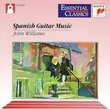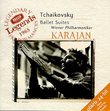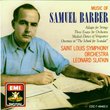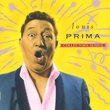| All Artists: Ludwig van Beethoven, David Zinman, Zurich Tonhalle Orchestra Title: Beethoven: The Nine Symphonies Members Wishing: 1 Total Copies: 0 Label: RCA Release Date: 4/27/1999 Album Type: Box set Genre: Classical Styles: Historical Periods, Classical (c.1770-1830), Symphonies Number of Discs: 5 SwapaCD Credits: 5 UPC: 743216541027 |
Search - Ludwig van Beethoven, David Zinman, Zurich Tonhalle Orchestra :: Beethoven: The Nine Symphonies
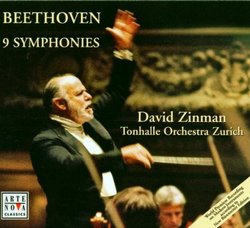 | Ludwig van Beethoven, David Zinman, Zurich Tonhalle Orchestra Beethoven: The Nine Symphonies Genre: Classical
If you're looking for a real bargain set of Beethoven's complete symphonies, look no further. David Zinman leads the Tonhalle Orchestra Zurich through the big nine. Unconventional--this is the world-premiere, modern-instru... more » |
Larger Image |
CD DetailsSynopsis
Amazon.com essential recording If you're looking for a real bargain set of Beethoven's complete symphonies, look no further. David Zinman leads the Tonhalle Orchestra Zurich through the big nine. Unconventional--this is the world-premiere, modern-instrument recording of the New Barenreiter Edition (translation: slight variations in the scoring)--and with Zinman's typically fast tempos, these are spirited, though probably not definitive, performances. Herbert Von Karajan's 1963 cycle of Beethoven's symphonies must still be considered the essential versions and, costing only 10 dollars more than this set, it's just as much of a bargain. But, for Beethoven lovers on a tight budget, folks looking to add one more Beethoven cycle to their music library, or experts who want to hear what the fuss of the Barenreiter Edition is about, this set shouldn't be passed up. Zinman and Tonhalle have delivered a winner, with excellent sound and a great sticker price. --Jason Verlinde Similarly Requested CDs
|
CD ReviewsNuminous! A "Must Have!" Phillip J. Rodgers | West Central GA USA | 04/05/2001 (5 out of 5 stars) "The Beethoven symphonies are essential to any good music collection and the music lover has a ridiculously large number of recordings to select from. The selection process just got easier. The Tonhalle Orchestra Zurich (under the scorching direction of David Zinman) has recorded the 9 on the Arte Nova label. Now this would be a superb recording under any circumstances, but when you take into account that the entire set (5 CDs) sells for a terrific bargin price these recordings have no rival!!! Zinman uses the new critical Barenreiter Edition of Jonathan Del Mar, which means that many errors of the Breitkopf edition are corrected. Plus - and it is a real asset - Zinman tends to stick to Beethoven's blistering tempi. The little Turkish march in the 4th movement of the 9th just flies! The 8th symphony rips along like Haydn on crystal meth! I cannot recommend these performances too highly - they would be well worth a "full" price, but at this price it's a "no-brainer." Buy these, it will remind you why Beethoven is considered one of the titans of music." At 20 bucks for the whole cycle, how can you pass this up? William J. Mertens | Bethesda, MD USA | 07/17/1999 (5 out of 5 stars) "I'll give the cycle 5 stars in part because of the price and also in part because Zinman is well known and liked around here - having made some fine music with the Baltimore Symphony Orchestra for over a decade. As a second or third set of all nine Beethoven symphonies, these disks seem irresistible; even as a first set, they could be a fine choice.Zinman is in tight control of his orchestra throughout. The tempos are consistently brisk and sometimes driven. The players are highly professional, if not quite at the level of, say, the Berlin Philharmonic. Zinman attempts an "authentic" sounding performance, though with modern instruments. Strings tend to be light, and winds and percussion are out front. Zinman also conducts from a new edition of the scores, reflecting recent scholarship (resulting, for example, in alternative endings to the 9th, based on different performance scores Beethoven himself used).These performances (like other "authentic" performances) can be a revelation in comparison to the grand-romantic style of Beethoven performance that had become conventional. But these performances also can be enjoyed by anyone on their own terms; Zinman knows how to make music." Leaves other cycles in the dust - Don't pass this up!! Mike G. | Cincinnati, OH | 12/06/2003 (5 out of 5 stars) "In light of such positive feedback of what I considered a sub-par review, I've decided to rewrite this and add some things that have recently come to light, namely comparisons that I've drawn to more recent recordings such as Paavo Jarvi's cycle with Bremen and Norrington's newer cycle with the SRSO, two cycles that are similar in scope to Zinman's.
I arrived at this cycle years ago after I grew increasingly disgusted with my previous set - Karajan's renowned '63 cycle with Berlin, characterized by sluggish and grandiose interpretations of what I think should be turbulent, violent, breathless music. At the time, this set stood as the only modern instrument alternative to such traditional interpretations, and I had not yet discovered the period-instrument culture, so this cycle was a must for me, and still remains close to the top of my list. Zinman's cycle is sort of a hybrid of modern and period styles. A few specific points on this factor: 1) The instruments themselves are modern, as in Norrington's cycle (I think). Zinman would go on to use natural brass for his recordings of the overtures and the concertos, as well as his Schumann cycle, but not here. Jarvi's brass - standard modern horns paired with natural trumpets, are much more incisive and closer in sound to Zinman's later (improved, in my opinion) brass. 2) Zinman keeps vibrato in the strings from getting out of hand, while not "banning" it altogether as Norrington does. Jarvi steers a path between the two. All three approaches are fine, in my opinion. 3) You'll hear the horns muting (stopping) some of their notes in the natural horn style. This is interesting at some points, but it can get a little too buzzy for my tastes, and this interferes with the solo lines much more than it should. Norrington's modern horns play in the conventional style. Jarvi again steers a middle course, only having the horns mute for coloristic effect, and usually when they aren't in the foreground. 4) Zinman's modern seating is a drawback for me. Norrington and Jarvi both use old-school antiphonal violin seating, and this is almost essential, in my opinion, especially for symphonies like the 4th that rely so much on those schizophrenic back-and-forth effects that were common up through Mahler's music and beyond. 5) Zinman reduces the quantity of strings, using combinations of about 12, 10, 8, 6, 4, or 14, 12, 10, 8, and 6, giving us a large chamber orchestra feel. Balances between the strings and winds are very good, and there is a strong bass presence. However, Jarvi's balances are even better, using an even smaller orchestra of 8 first violins down to 3 basses. Zinman keeps his brass heavily tamped down, while Norrington's entire cycle suffers from an annoyingly bombastic first trumpet. Jarvi allows his brass to shine through the texture, often to violent effect, without being overbearing. 6) Dynamics are observed uncompromisingly here, especially sudden differences between f and ff or p and pp. Phrasing tends to be very short and staccato, even down to the motoric 16th notes in the strings, which are played aggressively and spiccato. Most people mistakenly compare this to period style simply because it is different, but period instrument performances are much smoother in articulation. Of the three, Zinman's phrasing and articulation seem to be the most brusque, but on the other hand, he shapes the melodic lines very carefully and thoughtfully. 7) Zinman adopts Beethoven's rapid metronome markings, often hitting them right on the nose (only the last movement of the Eroica is significantly under the marking). To many listeners he may seem too fast, but for me it is the main attraction of this set. Simply put, Beethoven was an ambitious man, and pushed his orchestras to their technical limits in every respect, including what they could do within a given tempo. Zinman's interpretational choices seem to encourage these faster tempi (or perhaps vice versa?), and they sound completely natural. Norrington's pacing by contrast often seems awkward and unsteady. Jarvi's pacing is excellent, but his fidelity to the metronome figures is questionable in a couple spots (Norrington actually makes some bizarre choices of his own). 8) One thing almost no one has mentioned so far (and something that also appears in the Schumann cycle) is that Zinman has his woodwinds ornament their solo lines, adding little turns and trills here and there, even extending a cadenza or two in the case of the 5th and the 7th symphonies (sorry guys, that stuff isn't in the new edition). This is more reminiscent of baroque practice, and although one could certainly make a case for it boosting the spontaneity of a live performance, I don't think it has its place on records, where such spur of the moment choices become permanent and lose their meaning (I'm reminded of the Buddhist phrase "ichi-go ichi-e"). Furthermore, it is misleading to advertise these recordings as the first to use the new Barenreiter edition and then insert your own stuff, as evidenced by the fact that almost no one here has brought it up yet. Most of the hundreds of editorial revisions are much less audible. The general consensus seems to be that Zinman fares best in places where a sense of gravitas isn't as much of a requirement. I tend to agree with this, although the 5th symphony is just fine. However, his 3rd suffers from a lack of emotional weight. His 9th is surprisingly good, to my ears, but I'm missing the sense of grandeur that other versions provide. I think Symphony 7 is the weakest link here, not because it needs more weight, but because the orchestra just sounds undernourished throughout, especially the horns. I like to mix and match various interpretations within a symphony when I'm listening to Beethoven (usually from these three sets, with some Abbado and Benjamin Zander thrown in the mix). Call me unsophisticated, but I'm not very big on a singular "artist's vision". I sort of make my own up. That said, I have a clear preference for Jarvi's set when he does follow Beethoven's tempi. His ensemble seems more confident and more committed. Their sound quality, pacing, balance, attention to detail - it's all similar to Zinman's, just a little bit better. (Norrington is great too, but I can't get past that stupid first trumpet). All three of the aforementioned cycles are quite edgy, so if you're looking for a modern instrument cycle that is a bit less caffeinated, Abbado and Vanska both provide a beefier approach that doesn't sacrifice Zinman's accuracy. Abbado is more vigorous where Vanska tends to be more refined. They're sort of halfway between these three and the standard fare. I won't even touch on period instrument stuff here, as I've gone on long enough." |

 Track Listings (8) - Disc #1
Track Listings (8) - Disc #1